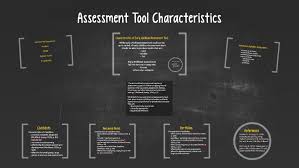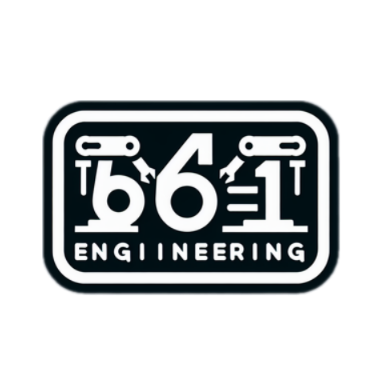In the dynamic field of mechanical engineering, having the right tools is crucial for achieving precision, efficiency, and quality in various projects. As we advance into 2024, the selection of mechanical tools has become more complex due to technological advancements and a wide range of options available. Choosing the best mechanical tools involves understanding your needs, evaluating tool features, and considering factors such as durability, cost, and brand reputation. This guide will help you navigate the process of selecting the best mechanical tools in 2024, ensuring you make informed decisions that enhance your work.
1. Understanding Your Needs
Before selecting mechanical tools, it’s essential to understand your specific requirements and the tasks you’ll be performing. Mechanical tools vary widely in their applications, and choosing tools that align with your needs will ensure efficiency and accuracy.
Key Considerations:
- Type of Work: Determine whether you need tools for fabrication, assembly, maintenance, or repair.
- Precision Requirements: Assess the level of precision required for your projects.
- Frequency of Use: Consider how often you’ll be using the tools, which can influence your choice between professional-grade and more budget-friendly options.
2. Evaluating Tool Features

Modern mechanical tools come with various features that enhance their performance and usability. When choosing tools, evaluate the following features to ensure they meet your needs:
**1. Material and Build Quality:
- Durability: Look for tools made from high-quality materials such as hardened steel, stainless steel, or advanced alloys. Durability is crucial for withstanding heavy use and maintaining performance over time.
- Construction: Consider tools with robust construction and ergonomic design to ensure comfort and reduce fatigue during use.
**2. Precision and Accuracy:
- Calibration: Choose tools with accurate calibration and measurement capabilities. Precision is essential for tasks such as machining, assembly, and quality control.
- Readability: Opt for tools with clear and easy-to-read markings, dials, or digital displays.
**3. Ease of Use:
- Ergonomics: Look for tools with ergonomic handles and designs that minimize strain and improve control.
- Adjustability: Tools with adjustable settings or features provide flexibility and adaptability to different tasks.
**4. Compatibility and Versatility:
- Interchangeable Parts: Some tools come with interchangeable parts or accessories, enhancing their versatility for various applications.
- Compatibility: Ensure the tools are compatible with other equipment or systems you use.
3. Top Mechanical Tools for 2024
**1. Wrenches and Socket Sets:
- Adjustable Wrenches: Adjustable wrenches, such as the Crescent wrench, offer versatility for different sizes of nuts and bolts.
- Socket Sets: Look for socket sets with a wide range of sizes and drive options, including standard and deep sockets. Brands like Craftsman, DeWalt, and Snap-On offer high-quality options.
**2. Screwdrivers and Drivers:
- Precision Screwdrivers: For intricate work, precision screwdrivers with magnetic tips and comfortable handles are essential.
- Cordless Electric Screwdrivers: These are ideal for tasks requiring consistent torque and speed, reducing manual effort.
**3. Pliers and Cutters:
- Combination Pliers: Versatile for gripping, twisting, and cutting, combination pliers are a staple in any toolkit.
- Diagonals Cutters: For cutting wire and small components, diagonals cutters with sharp, hardened edges provide clean cuts.
**4. Measuring and Layout Tools:
- Calipers: Digital or dial calipers offer precise measurements for internal, external, and depth dimensions.
- Laser Distance Measurer: Modern laser distance measurers provide quick and accurate measurements over longer distances, eliminating the need for manual tape measures.
**5. Power Tools:
- Cordless Drills: Advanced cordless drills with variable speed settings and high torque are essential for drilling and driving tasks.
- Angle Grinders: For cutting, grinding, and polishing, angle grinders with adjustable guards and variable speed controls are highly effective.
**6. Specialty Tools:
- Torque Wrenches: For applications requiring precise torque settings, digital or click-type torque wrenches ensure accurate results.
- Hydraulic Jacks: Hydraulic jacks with robust construction are crucial for lifting heavy loads safely and efficiently.
4. Considerations for Selecting Tools
**1. Brand Reputation:
- Trusted Brands: Choose tools from reputable brands known for their quality and reliability. Brands like Bosch, Milwaukee, Makita, and Stanley are renowned for producing high-quality mechanical tools.
- Customer Reviews: Research customer reviews and ratings to gain insights into the performance and durability of the tools.
**2. Budget and Cost:
- Cost vs. Quality: Balance your budget with the quality of the tools. While high-quality tools may have a higher upfront cost, they often provide better performance and longevity.
- Warranty and Support: Consider tools with warranties and reliable customer support for added peace of mind.
**3. Maintenance and Care:
- Cleaning and Lubrication: Regular maintenance, including cleaning and lubrication, extends the lifespan of your tools and ensures optimal performance.
- Storage: Proper storage, such as toolboxes or racks, helps keep your tools organized and protected.
5. Emerging Trends in Mechanical Tools

**1. Smart Tools and Connectivity:
- IoT Integration: Some modern tools feature IoT connectivity, allowing for real-time data tracking and remote diagnostics. Smart tools can enhance productivity and monitor tool performance.
**2. Sustainable and Eco-Friendly Tools:
- Energy Efficiency: There is a growing trend towards tools that are energy-efficient and environmentally friendly, such as battery-powered tools with longer runtimes and reduced emissions.
**3. Advanced Materials and Technologies:
- High-Tech Materials: Innovations in materials, such as carbon fiber and advanced composites, are leading to lighter, stronger, and more durable tools.
6. Conclusion
Choosing the best mechanical tools in 2024 requires careful consideration of your needs, tool features, and industry trends. By understanding your specific requirements and evaluating key factors such as durability, precision, and ease of use, you can make informed decisions that enhance your productivity and project outcomes. Investing in high-quality tools from reputable brands and staying updated on emerging trends will ensure you have the right tools to tackle various mechanical tasks effectively. Whether you’re a professional engineer or a DIY enthusiast, selecting the best mechanical tools will contribute to your success and satisfaction in your projects.



